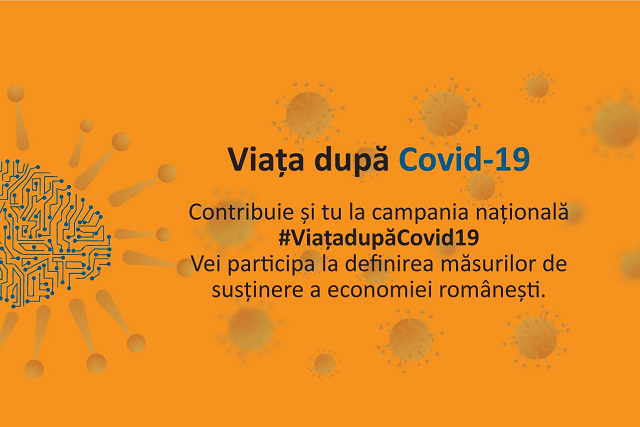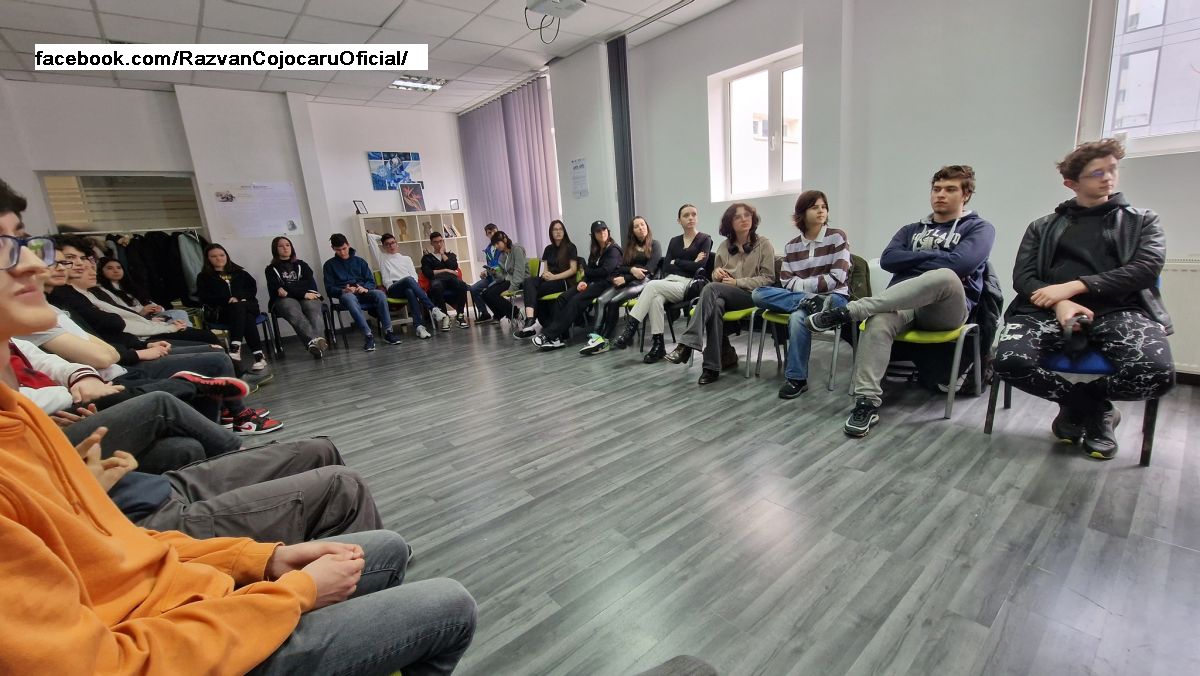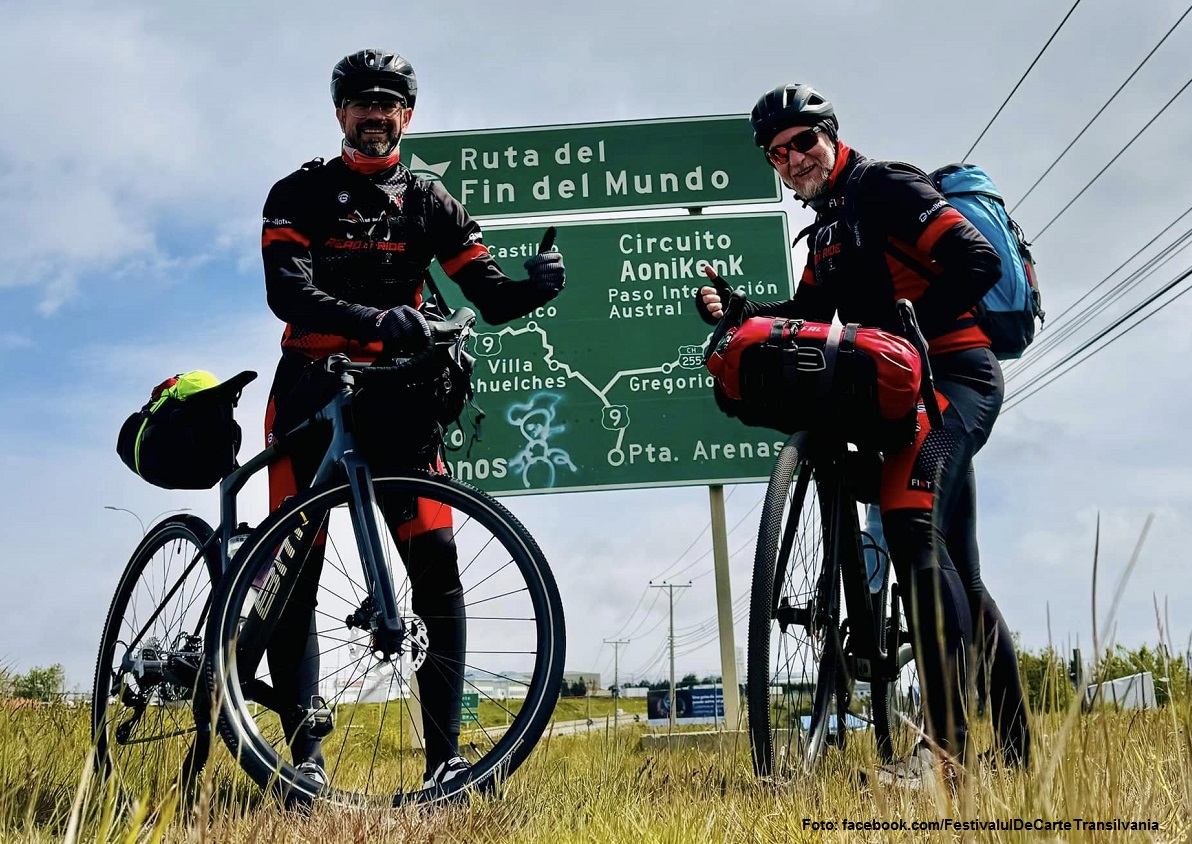Building Life Together #Life after COVID-19
Ingenius HUB has launched a line of research on the impact of COVID-19

Ana-Maria Cononovici, 05.05.2020, 14:00
Significant changes have occurred in the organization of companies and institutions in the context of the pandemic. From halting or converting production to shifting to working from home, or even temporary shut downs, companies had to find not only solutions, but convert their business models altogether. In this context, Ingenius HUB, through the Ingenius NET network, launched between March 31 and April 18 a line of research on the impact of COVID-19. The data will be used to inform a memorandum to be sent to the Presidency, the government, and local authorities, with a coherent set of measures needed to support Romanian organizations in the context of the COVID-19 crisis.
We talked about this project with Rodica Lupu, founder of Ingenius HUB:
“Since early last year, we founded, through Ingenius HUB, a network of stakeholders in innovation and technology transfer, because we are mainly concerned with innovation, and the network partnered with major universities, companies, employers associations, and with associations of SMES, but also local public authorities. These are the four pillars of the quadruple spiral of innovation, which we complied with, and in which we believe. Therefore we are able already to act at a higher level. I think we have managed to have a more comprehensive understanding of the difficulties that face various types of organizations in general, but especially when going through a crisis.”
Ingenius HUB is a space for co-working and acceleration for young entrepreneurs, created in 2014-2015 together with the Academy of Economic Studies. Since then, Ingenius HUB has financed over 200 businesses. However, the organization had to adapt, as Rodica Lupu told us:
“Right now, in the middle of an unprecedented crisis, we believe it is imperative that we consult organizations from all these environments, because we cannot risk founding our decisions on previous experience. And the way in which organizations are affected now is fairly heterogeneous, the problems are diverse, and I dont think they can be covered by existing experience. We believe that without widespread research and public consultation we cannot take effective measures, which are needed for a speedy recovery.”
Ingenius HUB is meant to address all industries, services, technologies, and IT. Here is Rodica Lupu once again:
“We cater to all kinds of organizations that can propose solutions with sizable impact, without disproportionate investments, or some that the state could not sustain. Our aim, with the research we launched on March 31, is to understand the diversity of the issues and the exact impact of this crisis, as we can understand it at this point. Obviously, the impact is hard to calculate, because we dont know what is to come, and everything is unpredictable, not just for us, but for all states. Which is why we have included in the questionnaire questions related to estimates on the next six months. Of course, these estimates will give us more of an X-ray of the state of mind of entrepreneurs, rather than of the actual impact. Thirdly, we have put into the questionnaire a set of fairly wide ranging guidelines. They are examples of measures that we can propose, with an emphasis on the industries that were most affected and are now shut down, including by executive order. We are not dealing only with those industries, the measures are meant to cover the entire spectrum of companies and organizations. “
Ingenius HUB was created because of the growing concern in all areas relevant for the Romanian economy, businesses, NGOs, public institutions or research institutions. We asked Rodica Lupu how she believes that we can restart the engines:
“Hard to say. We believe that we must take measures on several directions at the same time. Immediate and direct measures are needed for industries that are most affected, all that is meant by tourism, then training, events, private education, all very important for the social fabric. We believe it is essential to not allow companies to fail, or to keep the number of those who do as low as possible. At the same time we need social measures for the collateral victims, to the extent that we already have a very high number of unemployed.”
The campaign Building Life Together #Life after COVID-19 is aimed at gaining real input that could lead further down the road to feasible proposals. The participants had access to results, and can themselves make their own proposals as part of the final memorandum.
CC






























